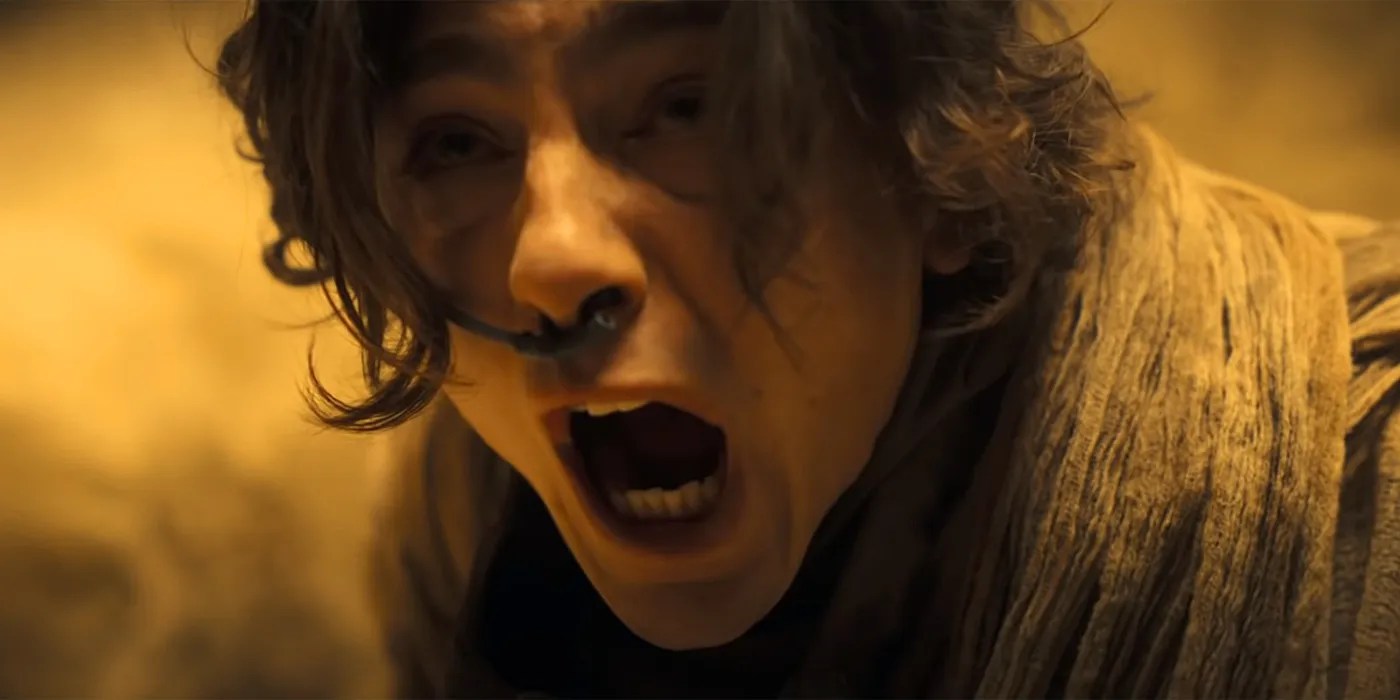Dune Evil: Unraveling The Dark Forces In The Dune Universe
Dune Evil is a concept that has intrigued readers and viewers alike since the inception of Frank Herbert's epic saga. As we delve into the intricacies of this universe, we uncover the complex interplay of power, betrayal, and the dark forces that shape the destiny of its characters. In this article, we will explore the theme of evil in the Dune series, examining how it manifests through various entities, characters, and the overarching narrative.
The Dune series, set against the backdrop of the desert planet Arrakis, introduces us to a world where survival hinges on the precious spice melange. This spice is not only a vital resource but also a catalyst for the emergence of evil forces that seek to control it. The struggle for power over Arrakis leads to a myriad of conflicts, each steeped in moral ambiguity and the consequences of ambition.
Through a thorough analysis of Dune Evil, we will dissect the motivations behind key characters, the influence of factions, and the philosophical questions that arise from their actions. Join us as we embark on this journey through one of science fiction’s most profound narratives, revealing the darker aspects of human nature and the eternal battle between good and evil.
Table of Contents
- 1. Understanding Dune Evil
- 2. Key Characters Representing Evil in Dune
- 3. The Role of the Bene Gesserit
- 4. The Sardaukar: Instruments of Tyranny
- 5. The Influence of House Harkonnen
- 6. The Emperor and His Dark Agenda
- 7. The Philosophical Underpinnings of Evil
- 8. Conclusion and Reflection on Dune Evil
1. Understanding Dune Evil
The concept of evil in the Dune universe is multifaceted, encompassing personal ambition, systemic oppression, and the corrupting influence of power. At its core, Dune Evil represents the choices made by individuals and institutions that lead to suffering and chaos. Frank Herbert masterfully illustrates how the pursuit of power can lead even the noblest characters astray.
2. Key Characters Representing Evil in Dune
Several characters in the Dune saga embody the essence of evil, each contributing to the overarching theme of moral decay and ambition. Some notable figures include:
- Baron Vladimir Harkonnen: The epitome of cruelty and manipulation.
- Emperor Shaddam IV: A ruler driven by fear and ambition.
- Feyd-Rautha: The Baron’s sadistic nephew, representing youthful ambition twisted by evil.
2.1 Baron Vladimir Harkonnen
Baron Harkonnen is perhaps the most notorious villain in the Dune series. His insatiable hunger for power leads him to commit heinous acts, including betrayal and murder. He represents the corrupting influence of wealth and the moral bankruptcy that accompanies unchecked ambition.
2.2 Emperor Shaddam IV
The Emperor embodies the systemic evil present in the Dune universe. His desire to maintain control over the Imperium drives him to employ ruthless tactics against House Atreides, showcasing how institutional power can perpetuate evil.
3. The Role of the Bene Gesserit
The Bene Gesserit sisterhood plays a crucial role in the dynamics of power and manipulation within the Dune series. While not overtly evil, their secretive nature and willingness to use individuals as pawns for their agenda raise ethical questions about their practices.
4. The Sardaukar: Instruments of Tyranny
The Sardaukar are the Emperor's elite military force, feared for their ruthless efficiency and loyalty. Trained on the harsh planet Salusa Secundus, they epitomize the brutal enforcement of power, often acting as agents of the Emperor's will. Their existence highlights the dark side of military might and its implications for freedom and justice.
5. The Influence of House Harkonnen
House Harkonnen's insatiable greed and desire for domination drive much of the conflict within the Dune saga. Their practices of exploitation and cruelty serve as a stark contrast to House Atreides' more honorable approach, illustrating the moral dichotomy that defines the struggle for control over Arrakis.
6. The Emperor and His Dark Agenda
Emperor Shaddam IV's machinations reveal the lengths to which individuals will go to maintain power. His alliances with House Harkonnen and manipulation of events to eliminate House Atreides demonstrate the interplay between personal ambition and systemic evil.
7. The Philosophical Underpinnings of Evil
Dune Evil invites readers to ponder profound philosophical questions about morality, power, and the nature of humanity. Herbert's narrative challenges us to examine our own definitions of good and evil, urging reflection on the consequences of our choices.
8. Conclusion and Reflection on Dune Evil
In conclusion, the exploration of Dune Evil unveils the complex nature of power and ambition within Frank Herbert's universe. Through a rich tapestry of characters and themes, we are reminded of the thin line between good and evil and the choices that define our humanity. As we reflect on these narratives, we are encouraged to consider the implications of our actions in the real world.
We invite you to share your thoughts on Dune Evil in the comments section below. What do you think drives the characters to their dark choices? Don't forget to explore other articles on our site for more insights into the Dune universe and beyond.
Thank you for reading! We hope you found this exploration of Dune Evil both informative and thought-provoking. We look forward to welcoming you back for more engaging content.
John Mactavish: A Deep Dive Into His Life And Achievements
Far Cry 7: The Next Chapter In The Epic Franchise
Kaguya Otsutsuki: The Progenitor Of Chakra In Naruto Universe


